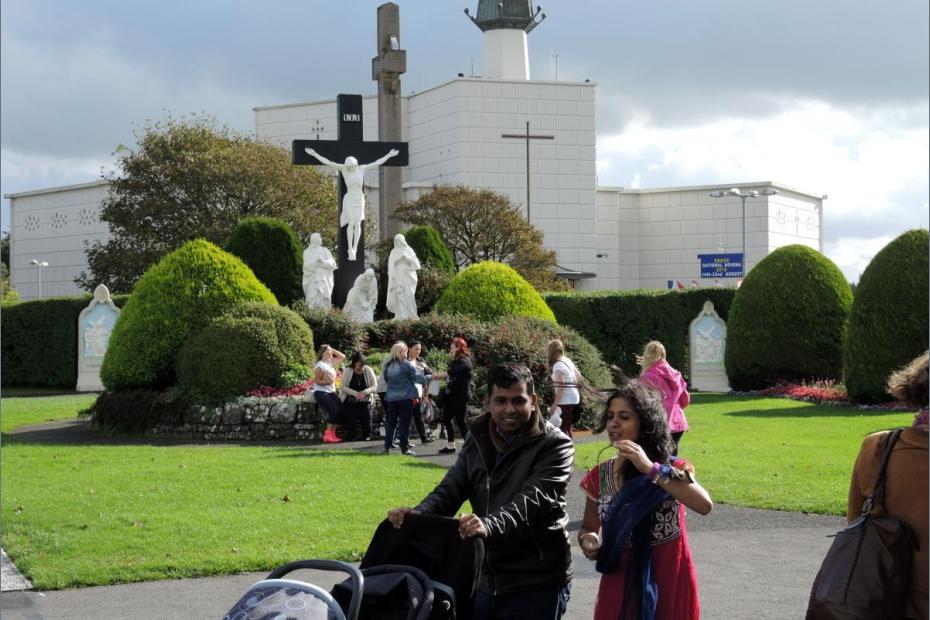Divorce has been legal since a highly contested constitutional amendment was approved in 1995, but Ireland still has one of the lowest divorce rates in the world.
In other ways, Ireland has, through popular referendums, changed its laws in ways that signal a seismic cultural shift. First, in a 2015 referendum 62% of voters agreed to amend the constitution to allow same-sex couples to marry. A 2017 Pew study provides reliable data specific to Catholic attitudes in Ireland: 65% of self-identified Catholics in Ireland favored allowing gays and lesbians to marry legally, while 30% opposed it.1
Until 2018, abortion was illegal according to Ireland’s constitution, as it had been amended in 1983. That amendment weighed equally the protection of the life of the unborn and the mother, which meant that abortion was prohibited in almost all cases. A referendum in 2018, 2/3 of voters voted to to overturn that clause in the constitution, making abortion legal. Even more traditionally conservative rural voters voted decisively to overturn it, and the proportion of young people voting to overturn it was huge.
Marriage ages in Ireland, once relatively high for men due to land tenure issues that delayed men’s ability to support a family, have moved steadily upward since hitting a low in 1975. In 2015, average marriage ages of grooms reached 35.3, and for brides reached 33.2. Those ages are the eighth highest among the 28 European countries identified. Two-thirds of weddings were church-officiated, with 56.7% of all marriages taking place under the auspices of the Catholic Church.2
A March, 2015 Eurobarometer report provides statistically reliable data on some issues of gender equality in Ireland, though it did not provide a country-by-country breakdown by gender.3 According to that survey, 75% “totally agree” and 20% "tend to agree" that "equality between men and women is a fundamental right."4 54% saw inequalities between men and women as “widespread,” and 70% saw them as less widespread than a decade before.5
The Irish today fall on the more liberal end of the spectrum when it comes to the question of whether "family life suffers when the mother has a full-time job": 22% "totally agree," and 32% “tend to agree."6 And among their European peers they are slightly more likely than other nationals to agree that “men are much less competent than women at performing household tasks."7
Asked whether "a man must put his career ahead of looking after his young child" only 9% of Irish “totally agree,” and 24% "tend to agree." More than 66% of Europeans disagreed with the absent male breadwinner model of parenting model, compared with 61% of the Irish.8
- 1Jeff Diamant, "How Catholics around the world see same-sex marriage, homosexuality" https://www.pewresearch.org/fact-tank/2020/11/02/how-catholics-around-the-world-see-same-sex-marriage-homosexuality/
- 2Central Statistics Office, Marriages and Civil Partnerships 2015, http://www.cso.ie/en/releasesandpublications/er/mcp/marriagesandcivilpartnerships2015 Accessed Feb 9, 2017.
- 3European Commission, Special Eurobarometer 428 "Gender Equality" http://ec.europa.eu/public_opinion/archives/ebs/ebs_428_en.pdf
- 4European Commission, "Gender Equality," 31.
- 5European Commission, "Gender Equality," 40, 45.
- 6European Commission, "Gender Equality," 16.
- 7European Commission, "Gender Equality," 19.
- 8European Commission, "Gender Equality," 20. 9% did not have an opinion.
